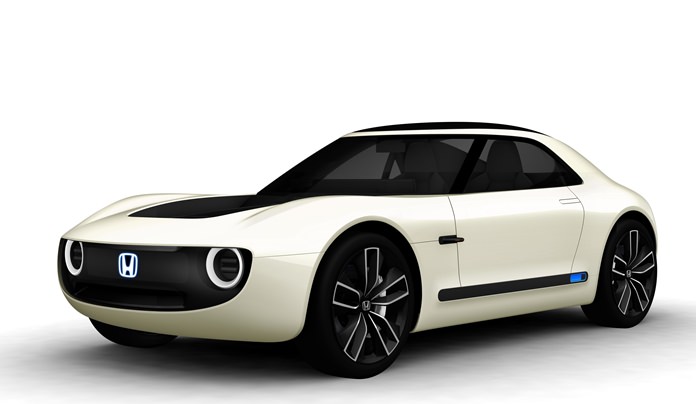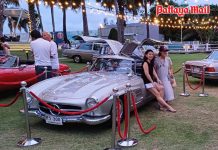
The Tokyo show had its usual line-up of futuristic designs. Honda somehow fell back into the 60’s with its Sport EV, a sporty looking car which would not have been out of place at a prom in 1966. However, no cigar!
 Two months ago, Honda released the Urban EV which foretold the direction Honda is taking with a fully EV line-up. Both cars have the circular ringed headlights set into the grille, and no fancy strip lighting which is almost de rigueur these days.
Two months ago, Honda released the Urban EV which foretold the direction Honda is taking with a fully EV line-up. Both cars have the circular ringed headlights set into the grille, and no fancy strip lighting which is almost de rigueur these days.
The Tokyo concept also uses the same platform as the Urban EV; however, Honda is yet to disclose details on powertrain output or range, other than mentioning it will “include a high-density, lightweight battery pack, integrated heat management and the evolution of energy transfer functions.”
Other design cues are borrowed from the Urban EV concept, including slimline cameras in place of door mirrors, black bonnet (just how 60’s is that?), cream exterior color and the black sill stripe with glowing blue element.
It will most likely use Honda’s Power Management EV charging system, which can distribute charge between a vehicle, domestic residence and the power grid as a fully integrated energy transfer system.
Honda has also called the powertrain a “highly responsive electric power unit”, boasting “powerful, smooth acceleration … with serene quietness”.
However, some 2018 directions could be seen in Honda’s latest artificial intelligence (AI) technology, in the form of the Honda Automated Network Assistant, which communicates between driver and car.
Where do these cars sit in the global scheme of things? Given its small dimensions, the Sports EV could be seen as a possible precursor to a new-generation model such as the diminutive Japan-only S660 (Kei cars) or discontinued S2000 convertible.
Using electric technology in sports-focused vehicles is a familiar exercise for Honda given its current range-topping model, the NSX supercar that teams a twin-turbo V6 to three different electric motors for a combined output of 427 kW/646 Nm.
Honda has confirmed that the Urban EV concept will reach production by 2020, making the prospect of a Sports variant being sold alongside it quite likely.





